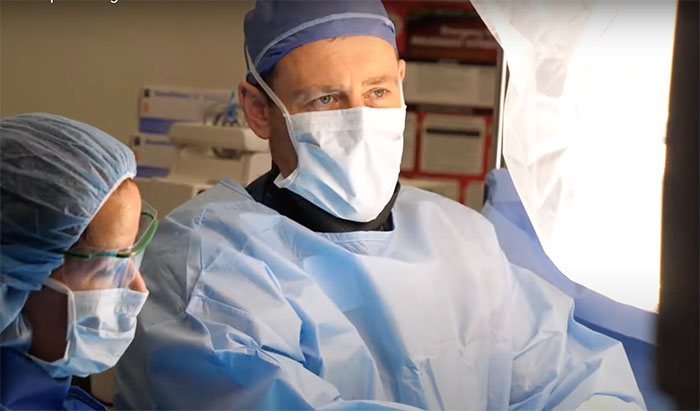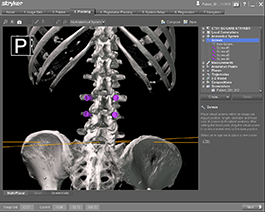- Locations
- Find a Physician
- By Physician
- By Department
- The Center for Spine Health
- Hand & Wrist Center
- Shoulder & Elbow Center
- Foot & Ankle Center
- Joint Replacement Center
- The Sports Medicine Center
- Pediatric Orthopedic Center
- Trauma & Fracture Center
- Osteoporosis and Bone Health
- Oncology Center
- Cartilage Repair Center
- Concussion Rehab Center
- OrthoDirect
- Careers
- Patient Portal
- Intranet

The spine center of excellence concept for Rhode Island
The Center for Spine Health at University Orthopedics represents a regional spine center of excellence for the Rhode Island region.
 The criteria for a spine center of excellence can vary and can often be distorted because of financial gain for the entity labeling spine programs. For example, one health insurance company (payor) defines its list of spine centers of excellence based on its desire to REDUCE the number of spine surgeries to lower the cost of treatment. So in this case, it is creating a restrictive network of treatment providers simply for economic benefit. Such a payor, for example, mandates that a person with back or neck pain NOT go to a spine surgeon but rather a non-surgeon who is biased against spine surgery and steers treatment to less expensive, and perhaps less beneficial treatments for a herniated disc. In this case, the payor has distorted the definition of a spine center of excellence and confuses the person looking for a true spine center of excellence. So the consumer must be careful when seeing a payor’s definition of a spine center of excellence.
The criteria for a spine center of excellence can vary and can often be distorted because of financial gain for the entity labeling spine programs. For example, one health insurance company (payor) defines its list of spine centers of excellence based on its desire to REDUCE the number of spine surgeries to lower the cost of treatment. So in this case, it is creating a restrictive network of treatment providers simply for economic benefit. Such a payor, for example, mandates that a person with back or neck pain NOT go to a spine surgeon but rather a non-surgeon who is biased against spine surgery and steers treatment to less expensive, and perhaps less beneficial treatments for a herniated disc. In this case, the payor has distorted the definition of a spine center of excellence and confuses the person looking for a true spine center of excellence. So the consumer must be careful when seeing a payor’s definition of a spine center of excellence.

The core element of a spine center of excellence is that the spine center uses a multi-disciplinary team approach to avoid biased treatment. The spine center should include the following components:
- Board-certified and in many cases fellowship-trained spine surgeons in ortho spine or neurospine surgery.
- Board-certified Physical Medicine & Rehabilitation specialists, often fellowship-trained in interventional spine, or other non-surgical interventional anesthesiologist/pain management MDs, who provide spinal injections that can relieve pain symptoms and neurological deficit without surgery.
- Internal or affiliated spine specialized therapists with credentials and advanced training & experience in spine. These spine therapists have an emphasis on ACTIVITY and EXERCISE instead of passive modalities (head/ice/ultrasound) that feel good but cure nothing long term.
- An overall emphasis by the spine center on non-surgical treatment options in advance of spine surgery.
- If surgery is necessary, an emphasis on minimally invasive spine surgery to reduce the length of the incision, reduce blood loss and speed return to activity with a less painful recovery.
- An emphasis on artificial disc replacement for motion preservation.
- An emphasis on heavy patient education and back and neck health for prevention of future problems and reinjury.
Most medical directors of health insurance plans across the country are concerned with the wide variation in treatment associated with back and neck pain care. Many believe that back surgery is performed too readily and that too many procedures are performed and too many opiods are prescribed for patients which can create long term problems. These are all legitimate concerns that can be addressed by a multi-disciplinary Spine Center of Excellence.
Back pain sufferers can also compound the problem of spine care with a do-it-yourself approach and resort to medicating themselves with over-the-counter painkillers, back braces and magnets in a frustrating quest for pain relief. Depending on where they seek help, treatment could include a barrage of unnecessary or unproductive X-rays, MRIs, pills, ultrasound procedures, ice or heat treatments, surgeries, manipulations, injections and tests.
Another problem is that surgery may be done by surgeons who don’t specialize in spine. This creates a higher risk of failed back surgery syndrome, where the patient ends up in a chronic pain center for perpetuity, undergoing costly procedures. This, unfortunately, is the frustrating scenario associated with back care.
 A Spine Center of Excellence facility can include:
A Spine Center of Excellence facility can include:
- Physician exam rooms for physical medicine specialists and spine surgeons to collaborate under one roof for coordination of care and improved communication about a patient’s case.
- Internal X-ray and access to MRI, CT and other diagnostic capabilities.
- Internal or affiliated spine therapists emphasizing active therapy with an exercise gym.
- Internal injection suite or injection procedure suite within an ASC environment for patient convenience.
- Use of Ambulatory Surgery Centers where possible to lower hospitalization costs, increase patient convenience, lessen time in the hospital with many patients having surgery and able to return home the same day.
- Emphasis on nonsurgical treatment options (spinal injections to reduce inflammation, spine therapy) in advance of spine surgery.
- If surgery is necessary, use of minimally invasive spine surgery techniques (e.g. tubular retractors the width of a ballpoint pen that lessen incision size from 3 inches to 1 inch) and instrumentation to reduce hospital stay and speed return to activity with a less painful recovery.
- Use of the most advanced motion preservation options, e.g. artificial disc in the cervical spine to reduce adjacent segment disease.
The Center for Spine Health represents an effort by University Orthopedics to develop such a spine center of excellence for the benefit of those in the East Coast region.








